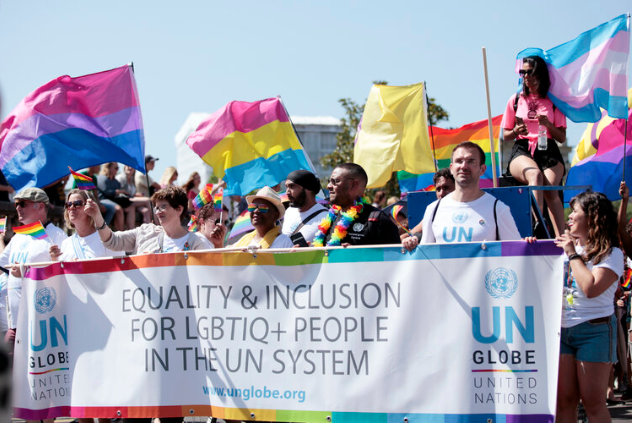The exploration of gender within the context of the Baha’i Faith promises to illuminate aspects of divinity that transcend traditional binary classifications. Baha’i teachings impart a profound understanding of the relationship between God and gender, facilitating a transformative perspective that transcends conventional parameters. This discourse lays forth a nuanced framework that not only acknowledges but venerates the diversity of human expression, inviting individuals to reconsider deeply entrenched societal norms.
The Baha’i Faith, founded in the 19th century, espouses a belief in the unity of all humanity and the essential equality of all people. This foundational principle serves as a cornerstone from which a reevaluation of gender identity can emerge. Baha’u’llah, the central figure of the Baha’i Faith, articulated a vision of inclusivity that challenges the limitations imposed by binary gender classifications. This inclusive perspective delineates a path toward understanding human beings as multifaceted manifestations of the divine rather than as mere representations of gender dichotomies.
Baha’i teachings posit that God is beyond human comprehension and gender, characterized as an entity that transcends the limitations of human attributes. This understanding proclaims that while individuals may experience life through various identities, God remains an enigmatic, genderless source of creation and guidance. Such a perspective invites adherents to not only reject rigid gender norms but to recognize the sacredness inherent in every individual, irrespective of their gender identity or sexual orientation.
At the heart of Baha’i belief is the assertion of gender equality. The Baha’i writings assert that women and men are equal in the sight of God, and each has unique attributes that contribute to the fabric of society. This philosophy shatters the long-standing societal myths that have dictated roles and responsibilities based on gender. The emancipation of women and the recognition of their rights form a crucial aspect of the Baha’i worldview, prompting a thorough reevaluation of how gender should be understood and celebrated.
The notion of the ‘twofold moral purpose’ emphasizes the complementary attributes of the masculine and feminine. Baha’i texts embody a vision where both qualities exist within all individuals, suggesting that each person embodies a synthesis of these traits. This duality champions a more holistic understanding of humanity, where strength and compassion, assertiveness and nurturing, coexist within the individual, enabling a richer engagement with both self and community. This blending prompts a radical departure from traditional gender roles, fostering a dynamic where everyone is encouraged to cultivate both sets of attributes regardless of societal expectations.
Furthermore, the Baha’i Faith envisions a society where diversity in all forms is not merely tolerated but celebrated. The principle of ‘unity in diversity’ serves as a guiding light, urging Baha’is to embrace differences as essential components of a harmonious existence. This perspective elevates the discourse surrounding gender identity, allowing for a dialogue that transcends binary distinctions and recognizes the validity of a spectrum of identities. By recognizing diverse gender expressions, Baha’is can embody the teachings of love, compassion, and acceptance, thereby creating an environment where every individual’s experience is valued.
The Baha’i community thus stands at a crossroads of tradition and modernity, grappling with the implications of gender fluidity within contemporary society. As discussions surrounding gender inclusivity gain momentum globally, Baha’is are poised to integrate these evolving concepts within their spiritual framework. The teachings offer considerable flexibility; they encourage inquiry and contemplation on the nature of gender, enabling followers to engage critically with modern interpretations of gender identity while remaining rooted in spiritual principles.
Community engagement plays a vital role in this exploration. Baha’is are called to foster conversations around gender at local and global levels, creating safe spaces where individuals can express their identities without fear of judgment. These communal gatherings can serve as incubators for deeper understanding, emphasizing shared experiences and collective growth. By nurturing dialogues that encompass all identities, Baha’is can cultivate an ecosystem that reflects the core tenets of the Faith—unity, love, and respect for all.
Moreover, education emerges as a crucial vehicle for fostering understanding of gender inclusivity. The Baha’i perspective on education emphasizes not only intellectual development but also the moral and spiritual growth of individuals. Integrating discussions on gender and identity within educational curricula can promote understanding and acceptance from an early age. This educational foundation can equip future generations with the tools necessary to navigate the complex landscape of gender identities, promoting an abiding respect for diversity.
The Baha’i Faith invites individuals to embark on a spiritual journey that transcends the binary. This transformative approach reframes God and gender as not strictly dichotomous but as parts of a magnificent continuum that reflects the richness of human existence. By embracing the divine attributes inherent in all individuals, the Faith embraces a paradigm shift that encourages a deeper understanding of self and others, promoting a culture of acceptance and love. In this regard, the Baha’i teachings not only reveal God’s boundless love but also challenge us to embrace each other beyond the confines of societal categories, aligning with the Vision of universal peace and justice for humanity.
